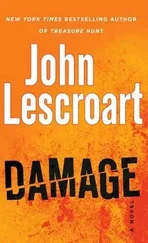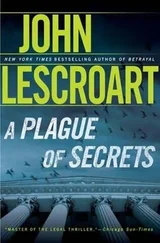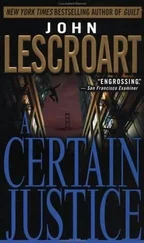She buried her face in my shoulder and cried softly. “Any of your friends. Why won’t they leave us alone? Oh, poor Marcel.” Her voice broke again. She looked up at me pleadingly. “Jules, really, you’re not involved? You’re not a spy?”
“No,” I said, “no, I’m not a spy. I’m a middle-aged man who’s getting old and ready to retire with his lover. I don’t want anything to threaten that, so I carry a gun, but only until we find what happened to Marcel. All I want to do is brew beer and tend my vineyards”—I picked up her chin—“and love you.”
She smiled bravely.
I kissed her again and stepped back. “I have to go. Georges and Paul will be waiting. I’ll pick you up on the way back. We’ll stay together tonight.”
I watched her walk off into the house, then turned and headed down the stairs to the Ford. The damn thing was, all I really did want to do was brew beer and tend my vineyards and live with Tania. But, then, what if Tania were a spy? No, I wouldn’t let myself think that.
It was hot in the car as I turned into the road. I’d have to see Lupa after I’d been to St. Etienne, and I found myself hoping that Fritz would deliver the beer before long. I was as bad as Lupa with his sausages. My rituals were beginning to keep me from the pain of Marcel’s death, as a kind of insulation.
But my friend was dead, and when the rituals were over, that would remain, so I drove slowly, thinking of my own best sausage recipe and watching out for potholes.
6
The war was everywhere. If normal life can be said to continue in a town stripped of its young men, then normal life went on. But of course the war touched everyone you knew or met and colored the mood of the entire countryside. Even as the sun shone brightly down on our fountain, where Paul sat with his pants rolled up cooling his feet, the streets were cleared for a convoy of trucks and carriages carrying supplies to the front.
I pulled over and parked across the square, watching the vehicles roll past, then walked over to join my friends. Paul was smoking a cigarette and talking animatedly to Georges. They stopped as I drew nearer, and Paul pulled his feet from the water and rolled down his trousers.
“Ready?”
“Yes.”
“Let’s go, then.”
We helped Georges with his packages. There seemed to be enough gauze for the entire army, but he explained that there was to be a huge shipment to the front with the St. Etienne factory as the central warehousing point. It took several trips but finally we loaded all the bags, and after a demi at one of the cafes bordering the square, we left. Paul took particular delight in sitting atop the bundles of gauze. I’d removed the top to the car, and as we drove along he sang off-key but with great enthusiasm. He wanted to forget the funeral as soon as possible.
Finally, when the wind kept blowing his tobacco away before he could roll it, he joined us in the front seat.
“Never had that problem on a horse.”
We rode along, then, quietly for a while. The trees passed quickly by on either side of the road. Paul smoked in what he called the “French manner,” blowing the smoke out of his mouth and up into his nose. Georges sat against the other door, looking reflectively at the passing scenery.
“Has it occurred to anyone,” he asked, finally, “how incredibly inept the police have been about this whole thing? You’d think that it wasn’t a possible murder they were investigating but something more in the line of a petty theft.”
“Oh, I don’t know,” said Paul. “I have to register every day at St. Etienne to make sure I don’t try to leave the country.”
“That’s because you’re not French. Here I go off on business for the next four or five days, and they’ve asked me to prepare an itinerary of my stops, but no check-in in the towns themselves. If I had killed Marcel, I could be beyond Algeria if I decided to leave. It makes no sense.”
“It’s the war,” I said. “Even forgetting that the heart of the force is gone to fight at the front, for the rest, all of their routines are upset, and without their routines . . .”
“Well, they might as well be at the front for all the good they do here.”
“Now, Georges,” said Paul, “I suppose they’re doing something, and we just don’t know about it. Besides, if you decided to go to Africa, that would be punishment enough for any crime I can think of. What heat!”
We were approaching St. Etienne, and Paul asked to be let out at a crossroads on the outskirts of town.
“I live just about a mile down the road. I mean two kilometers. And I feel like walking. I’ll see you all—when?”
“Wednesday?” I ventured. “It would be good to get back to normal.” Actually, it would be good to be able to predict where everyone would be at a certain time.
“I don’t know if I want to be in that room for a time, though,” Paul said. “Why don’t we make it somewhere else next week?”
“Fine. I’ll get back to you. Is that all right with you, Georges?”
He nodded.
“Okay, then,” said Paul, “see you later. Ciao. ”
With that, he turned and started up the road. Georges and I decided to light up cigarettes, and so had not yet driven off when Paul stopped two hundred meters away. A man stepped out from behind one of the trees lining the road and spoke to him. At that distance, I could see nothing descriptive. Since Georges was facing me, he saw nothing; and so without saying anything I engaged the gears and began to move. When I glanced back, both men had gone.
We continued on to St. Etienne, content to remain silent. I was wondering about Paul; in fact, by this time, I was wondering about everyone.
“Do you have time for a drink?” I asked Georges.
“Always.”
We stopped at a small, dark bar, and each of us ordered a cognac. We sat near the door, watching over the car and its load.
“What’s your business here?” asked Georges.
“Oh, I’m supposed to see some people about a vine graft. In fact, with all this mess about Marcel, I’m afraid I don’t feel like doing any kind of business. I was wondering if I could help you in your deliveries. Tania has told me a lot about the factory, or asenal, here. Whatever it is. Her friend Maurice Ponty is the director, and I’d like to see it. Keep my mind from . . . from other things.”
“Delighted, Jules! I could use the company. Maybe Ponty could show us around. Normally I only deliver to the gates.”
“Oh, you’ve never been inside?” Somehow I was both relieved and disappointed.
“No. Tight security and all that. Normally Henri and I come down together and leave everything with the attendants.”
“Hmm . . .” I said, rather pointlessly.
We finished our drinks and returned to the car. After a few more minutes of driving, we reached our destination.
The St. Etienne Arsenal and Munitions Factory was indeed a large and modern affair. It covered several hundred square meters of land on the eastern edge of the city, bounded by what must have been a tributary of the Rhone that carried away much of the waste. When the day was clear, and the wind from the right direction, you could see the smoke from the stacks as far away as Valence; a thick, sulfurous cloud usually hung over the structure. Brick chimneys to a height of nearly thirty meters had been built to lift the smoke so that it wouldn’t settle on the nearby houses. The entire structure was surrounded by a fence of barbed wire and guarded every twenty-five meters or so by troops. The building itself was made of a kind of adobe, which was originally white, but even in the short time since its opening had turned a sickly, dirty yellow.
Читать дальше












